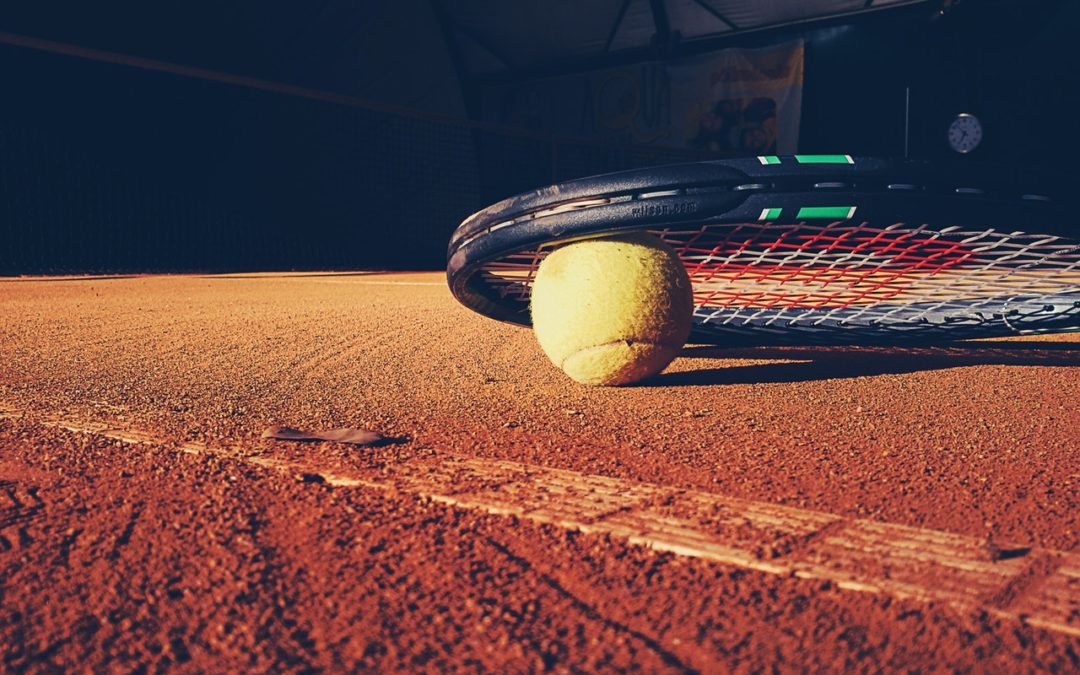Rule number one is to always remember why you fell in love with tennis. This first rule is so important because without remembering why you fell in love with tennis in the first place, you may soon resent all of the other elements involved in playing tennis that are necessary to maintain the level at which you are competing and to succeed in moving to the next level.
People fall in love with tennis for many different reasons. For some it may be the social aspect, a way to meet new people and share a common interest. Others may have started playing at a young age and grew to love tennis more than other sports. Or, as happened for me, there was no rhyme or reason to it. I caught the tennis bug, and the rest is history.
Problems arise when we forget the reasons why we fell in love with tennis. When this happens, the results of our game and our scores may take priority for us.
When you are expected to win, the pressure builds. This pressure may come from your captain, your coach, or yourself. Some of the best tennis players today are self-motivators and will not accept anything other than perfection in their game. Some players were naturally born to play tennis, but outside forces prodded them to the point where they are now.
To be a successful tennis player at whatever level or division you play, it is essential to spend just as much time, if not more, off the court preparing your mind and body for when you are on the court. And that means countless hours in the gym building up strength and agility, ensuring that you have the endurance needed on the court.
And this does not include the time and mental conditioning necessary to prepare for your matches. Without mentally training for your game, you may be the victim of unforced errors, which means giving up wins on the court. Think back to how many matches you have lost, not because the opponent was better than you but because you lost focus and let your emotions get in your way.
So much physical and mental training is needed on and off the tennis court that if you lose sight of why you appreciate and love the game, you will dread participating in fitness workouts, performing footwork speed drills, and using resistance bands, among other things. You may then find yourself taking shortcuts, which your opponent may leverage against you.
The second rule to having success in your tennis game is to recognize and know your emotions on and off the court. Many players do not realize that they have a guidance system built into their brain, similar to those bumps on the side of the road that alert you to when you are veering off course. Paying attention to your emotions is the quickest way to alert yourself that you are not playing with a clear and centered mind. You are headed in the wrong direction. Your emotions are a direct indicator of where your head is at any given moment.
Picture yourself driving down the highway in your high-performance car with a well-tuned engine. Your RPMs are in perfect sync with your speed. That is your clear, focused mind staying on course.
But then your mind drifts, whether because of a missed shot or because of a bad line call, and you feel bumps in the road. These bumps are your emotions coming into play. In our current scenario, the emotion of anger or doubt that you suddenly feel is letting you know that you have just veered off course. You are no longer in the zone, which is your optimal mindset and where you want to be.
Allow me to offer you a quick word about emotions and what they are signaling to you.
In any given moment, if you feel angry about something or you are criticizing yourself on the court, this is a clear indication that you are thinking of an experience that has already happened. But there is nothing you can think or do that will change an outcome that has already taken place.
If you feel nervous or overwhelmed, this may be because you are thinking about a situation that has not even occurred yet. This generally happens the night before a match. No amount of visualizing the probabilities will ever produce in your mind’s eye the eventual outcome. What you are doing in that moment is releasing stress hormones throughout your body, which affects your ability to sleep, not to mention the countless other negative side effects that may affect your match the next day.
The lesson here is to be consciously aware of your emotions throughout your day. Your emotions are your guidance system, and your present moment is the only one on which you should concentrate. What you focus on NOW affects all of the moments that come after it.
The third rule for success in tennis, and the one that is likely holding you back the most, is to be aware of the beliefs that you hold about yourself and your game. Many players, whether recreational or pro, do not even notice their negative beliefs because they identify with only the positive ones. I have a killer forehand. My backhand slice is my best weapon.
Many players are one-hit wonders, meaning that they rely too much on one particular shot. The problem with this is that after a couple of games, opponents may easily spot your best shot, and if they are any good, they will figure out how to work around your stellar forehand.
But the mental side of the issue is that by telling yourself that you have a powerful forehand, you are actually saying that your backhand is weak. If you are able to inject a little self-truth into the equation here, you might agree that this is usually the case.
In fact, if you favor your forehand over your backhand, how much extra time and energy do you spend going around the ball in order to hit that potent forehand. You might not be telling your peers, Hey my backhand is horrible., but you are holding that belief about yourself.
Or we could use the belief that many players have about tie-breakers, which I personally think is a negative belief pattern. I’ve heard this countless times from tennis friends as well as from clients, I hate tie-breakers, I always lose them!
What is the advantage of stating or believing this about yourself? The only advantage that I can see for believing this would be to hold the tennis gods responsible for what happens to you, so that you would not have to be held accountable for taking a good, long look at why losing tie-breakers seems to be a pattern for you.
All that might be necessary here is a simple shift in your mindset about how you look at tie-breakers or taking a few lessons in the best strategies for winning them. But 90 percent of the time it is negative mental feedback that is causing the trouble.
There are many reasons why we form negative beliefs about ourselves and our game. Where these beliefs came from is not important. What is important is that you identify them and shift your perspective about them so that you may use them to your advantage against your opponents.
I hope that these three basic rules help you improve your mental tennis game, which will then help you improve your tennis performance and scores. I encourage you to take the time to scratch the surface and examine what thoughts and emotions you have throughout your day, especially when you have a racket in your hand. You will be surprised at how much they truly affect your game.
Now, go out there and take your mental game to the next level!

